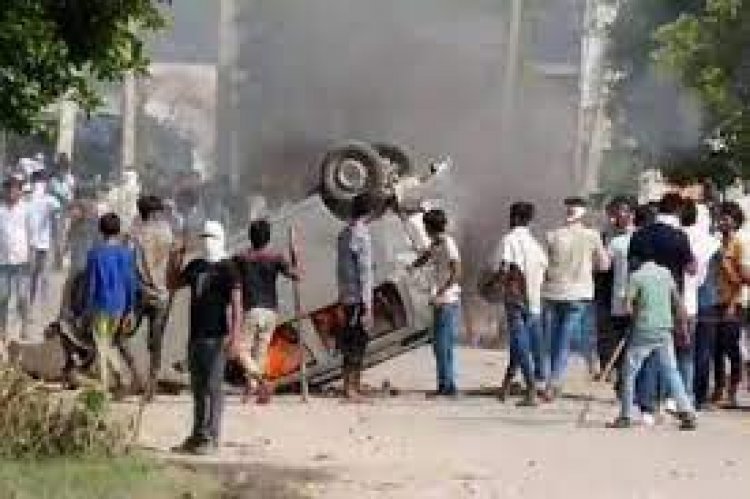Haryana Communal Violence: A Silver Lining
Asia News Agency

Saeed Naqvi (journalist, television commentator, interviewer) presents a hitherto unread analyses of the communal violence in Haryana’s, predominantly muslim Nuh district
Jat-Muslim social cohesion
Much to the BJP’s chagrin, an obstacle in their path is the evolving Jat-Muslim social cohesion. This almost organic Jat-Muslim evolution has to be disrupted to make way polarisation. These two major communities in a state under BJP rule have established a bond of peace.
One reason for this harmony in past centuries, writes naive “was the Meos’ unabashed contemplation of themselves as converts from Hinduism: they took pride in the culture derived from their Hindu ancestry. Jats are against the Centre because of the government’s indifference to the agitation for Jat reservations.
Second, and more important in welding Jats and Muslims, argues Naqvi “was the farmers’ agitation, where the Meos stood with Jats. The Jats of Palwal, Sohna and Gurgaon sentimentally remember ‘our Sikh brothers’. The generosity with which they opened ‘langars’, or feeding centres, is the stuff of legend in the Jat belt.
In the recent agitation by women wrestlers, who happen to be Jats, the community again had total support from Muslims.
In other words, “Jats and Muslims are arrayed against the Bajrang Dal’s efforts to consolidate Hindus. Brahmins, Thakurs and Gujjars are now on opposite sides.”
Lesson in the Meo-Jat bonding, but some vulnerabilities
There is a huge lesson in the Meo-Jat bonding, writes Naqvi. “This is the secularism of joint struggle and common purpose, infinitely more durable than the shallow secularism of mutual tolerance. There are some vulnerabilities. The saturation coverage given to the foul allegation at the peak of the Covid-19 pandemic that Muslims in the Markaz at Nizamuddin were deliberately spreading the virus had its fallout in Haryana too. Anyone who looked like a Muslim was avoided by all Hindus, and Jats were no exception.”
















